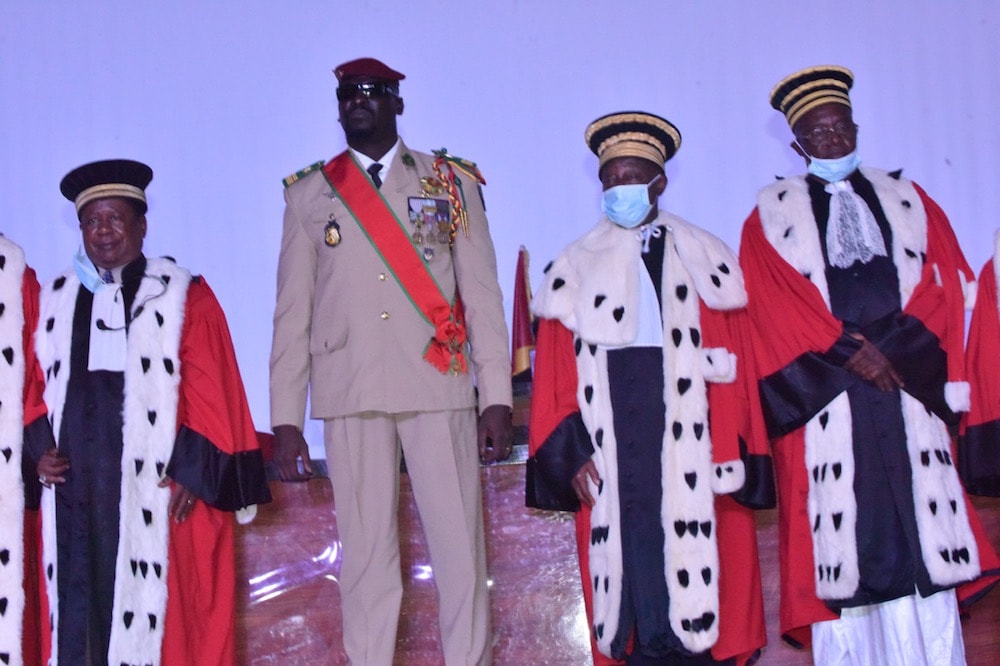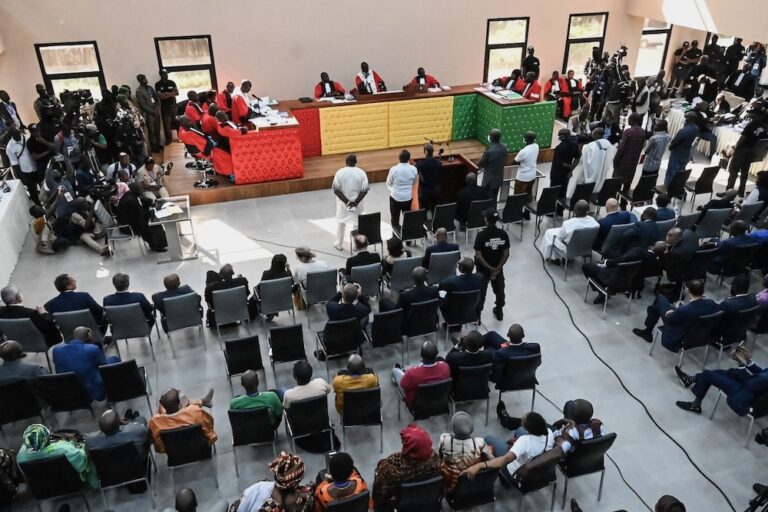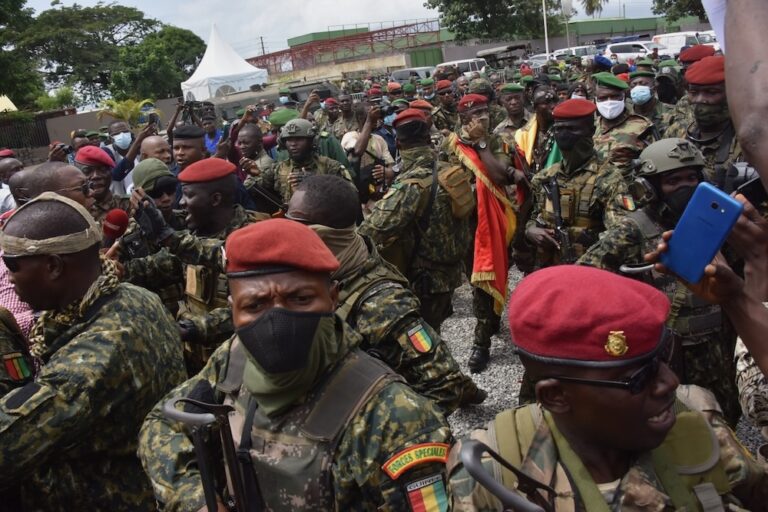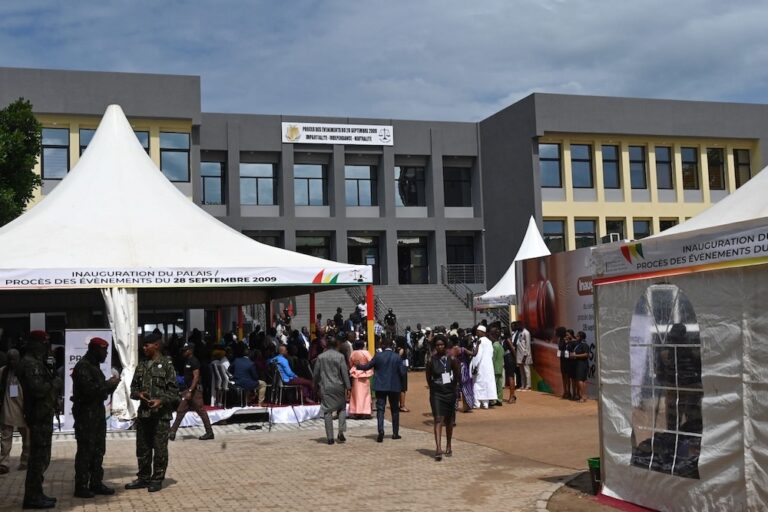Rights group RSF together with their local partner Media Alliance for Human Rights engage media stakeholders and government over deteriorating press freedoms in the post-coup era in Guinea.
This statement was originally published on rsf.org on 27 October 2021.
Less than two months after President Alpha Condé’s removal by military coup d’état on 5 September, Reporters Without Borders (RSF) has just completed a two-day visit to Guinea to consult with journalists and others and to provide the new authorities with a list of ten recommendations for safeguarding and promoting press freedom during the decisive transition that has just begun.
Access to information, legal and institutional reforms, journalists’ safety, the media regulator’s independence, support for the media and professionalisation of the media were among the subjects discussed during RSF’s visit, conducted jointly with its partner organisation in Guinea, the Media Alliance for Human Rights (AMDH).
RSF met with journalists and representatives of media associations, with the president of the Guinean media regulator, the High Authority for Communication (HAC), and several of its members, and with the new civilian prime minister, Mohamed Béavogui, who was installed on 6 October.
“Guinea is undoubtedly at a turning point in its history and its reconstruction – which Col. Mamadi Doumbouya, the interim president, says he seeks – will not be possible without genuine safeguards and concrete reforms so that journalists can do their job of reporting the news freely and responsibly,” said Arnaud Froger, the head of RSF’s Africa desk, speaking at a news conference yesterday in the capital, Conakry. “We hope the authorities will usher in a new era, in particular by adopting the recommendations submitted to them during this visit.”
“Guinea cannot make more mistakes”
Since the military takeover, access to information and official events has proved difficult, especially for privately-owned media outlets. A special forces raid on 9 October on a radio station owned by a former president’s ally also alarmed journalists. Representatives of journalists at the public radio broadcaster RTG, who were protesting about the lack of resources available to them to do their work, were received two days ago by the military junta, the National Committee of Reconciliation and Development (CNRD).
AMDH president Chaikou Baldé added: “Guinea cannot make more mistakes and its journalists will have an essential role to play if the country is to avoid the injustices, corruption and misgovernment that have prevailed for too long.”
Guinea has fallen 23 places in RSF’s World Press Freedom Index since 2013 and is now ranked 109th out of 180 countries.
RSF’s 10 recommendations for guaranteeing press freedom during the transition in Guinea:
- The president and transitional government affirm the primordial importance of journalistic freedom, independence and pluralism to democratic life and Guinean society.
- The authorities respect the right of journalists with both state and privately-owned media to freely access information and events of interest to the nation.
- The Guinean authorities undertake to respect the 2010 press freedom law abolishing prison sentences for press offenses, and at the same time to end arbitrary arrests and imprisonment of journalists for press offenses.
- The president undertakes to quickly promulgate the law on access to information that was passed in 2010.
- The government guarantees an open, free and safe environment for journalists. The police ensure the safety of journalists during protests and do not confiscate their equipment.
- The government undertakes to prosecute those responsible for abuses against journalists in order to end the climate of impunity that is harmful to press freedom.
- As the law states, the High Authority for Communication (HAC) guarantees respect for “plurality and the expression of currents of thought and opinion” in the media by providing “support and mediation to avoid abusive government control of the media.” It ensures respect for the freedom and independence of radio and TV broadcasters by refraining from all decisions that are not based on facts and the law.
- The HAC’s independence vis-à-vis the government must be reinforced by modifying, for example, the method of appointing its members, by including more journalists from independent media, and by not giving the country’s president the power to appoint more members.
- The government creates a fund that allocates financial assistance in a transparent, fair and impartial manner to media outlets so that they can continue working despite the Covid-19 pandemic’s impact on their finances.
- The government undertakes to develop and improve training for journalists, in particular on-the-job training, in order to help meet their needs and to promote independent, quality journalism.



